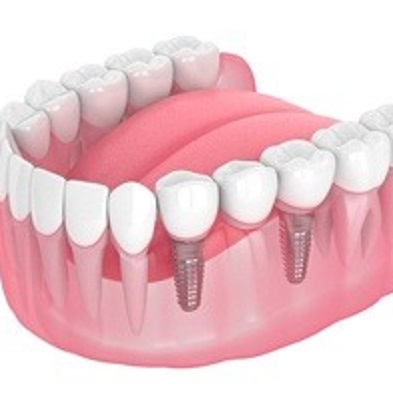Dental implants are a revolutionary solution for replacing missing teeth, offering a natural look and feel that can last a lifetime with proper care. While the success of dental implants largely depends on the initial surgical procedure and your post-operative care, the role of regular check-ups cannot be overstated. These routine visits to your dentist ensure the long-term health and stability of your Dental Implants, helping to prevent complications and maintain your oral health.
1. Understanding Dental Implants and Their Care Needs:
Dental implants consist of three main components: the implant itself, which is a titanium post surgically placed into the jawbone; the abutment, which connects the implant to the crown; and the crown, which is the visible part that functions like a natural tooth.
Though dental implants are designed to be durable and resistant to decay, they still require ongoing care to ensure their success. Just like natural teeth, implants can be affected by gum disease, bone loss, and other oral health issues if not properly maintained.
2. Why Regular Check-Ups Are Crucial:
Regular dental check-ups are vital for several reasons:
Monitoring Implant Stability: Your dentist will assess the stability of the implant to ensure that it is firmly integrated with the jawbone. Even if the implant feels stable to you, only a professional can determine if it has properly fused and if there are any signs of movement or failure.
Preventing Peri-Implantitis: Peri-implantitis is a condition similar to gum disease, but it affects the tissue surrounding the implant. It can lead to bone loss and ultimately implant failure if not treated early. Regular check-ups allow your dentist to catch and treat peri-implantitis before it becomes a serious issue.
Assessing Bone Health: Bone health is critical for the longevity of dental implants. During your check-ups, your dentist will evaluate the condition of the jawbone around the implant. If bone loss is detected, early intervention can prevent the implant from becoming loose or failing.
Maintaining Oral Hygiene: Your dentist will check for plaque and tartar build-up around the implant. Even with good home care, some areas can be hard to reach, making professional cleanings necessary to maintain optimal oral hygiene.
Checking for Wear and Tear: The crown on your dental implant can experience wear and tear over time, just like natural teeth. Regular check-ups allow your dentist to inspect the crown for any chips, cracks, or other issues that might need repair or replacement.
3. What to Expect During a Check-Up:
During a dental implant check-up, your dentist will perform several evaluations to ensure everything is in good condition:
Clinical Examination: The dentist will visually inspect your gums, implant, and surrounding teeth for any signs of inflammation, infection, or abnormal wear.
X-Rays: X-rays are often taken to check the position of the implant and the health of the surrounding bone. These images provide a clear view of what’s happening beneath the surface, allowing your dentist to identify potential problems early.
Oral Hygiene Assessment: Your dentist will review your oral hygiene practices and may offer tips to improve your routine. This could include demonstrating how to properly clean around the implant using special tools like interdental brushes or water flossers.
Professional Cleaning: A professional cleaning may be performed to remove plaque and tartar build-up around the implant. This cleaning is crucial for preventing gum disease and ensuring the longevity of your implant.
4. The Frequency of Check-Ups:
The frequency of your dental check-ups will depend on your individual needs and the recommendation of your dentist. However, it is generally advised to visit your dentist every six months for a routine check-up and cleaning. If you have a history of gum disease, bone loss, or other complications, your dentist may recommend more frequent visits.
5. The Risks of Neglecting Check-Ups:
Skipping regular dental check-ups can have serious consequences for your dental implants:
Increased Risk of Implant Failure: Without regular monitoring, early signs of problems like peri-implantitis or bone loss can go unnoticed, increasing the risk of implant failure.
Gum Disease: Neglected oral hygiene can lead to gum disease, which can affect not only your natural teeth but also the tissues surrounding your implants.
Bone Loss: If bone loss around the implant is not detected early, it can lead to the implant becoming loose or failing entirely
Unnecessary Costs: Addressing minor issues during regular check-ups is far less costly and less invasive than dealing with major problems that arise from neglect.
6. Tips for Maintaining Dental Implants Between Check-Ups:
While regular check-ups are essential, maintaining good oral hygiene at home is equally important. Here are some tips to help you care for your dental implants:
Brush Twice Daily: Use a soft-bristled toothbrush and non-abrasive toothpaste to clean your teeth and implants at least twice a day.
Floss Daily: Flossing around your implants is crucial to remove plaque and food particles. Consider using floss designed for implants or a water flosser for easier cleaning.
Use an Antibacterial Mouthwash: Rinse with an antibacterial mouthwash to reduce the risk of infection and keep your gums healthy.
Avoid Smoking: Smoking can impair healing and increase the risk of implant failure. If you smoke, consider quitting to protect your implants and overall oral health.
Watch Your Diet: Avoid hard or sticky foods that could damage the implant crown or contribute to gum issues.
Conclusion:
Regular check-ups are a critical part of ensuring the long-term success of your dental implants. These visits allow your dentist to monitor the health of your implants, catch potential problems early, and provide professional cleanings that complement your at-home care. By committing to regular dental visits and maintaining good oral hygiene, you can enjoy the benefits of your dental implants for many years to come.





Comments